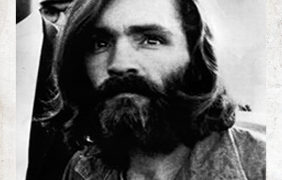 At the time when British invasion was all the rage, one relatively unknown big-haired, beautiful girl made a name for herself. During the late 1960s, Bobbie Gentry became the girl who was known as the one that knocked The Beatles off the top charts with her “Ode to Billie Joe.” But who exactly is Bobbie Gentry?
At the time when British invasion was all the rage, one relatively unknown big-haired, beautiful girl made a name for herself. During the late 1960s, Bobbie Gentry became the girl who was known as the one that knocked The Beatles off the top charts with her “Ode to Billie Joe.” But who exactly is Bobbie Gentry?
Bobbie Gentry, born Roberta Lee Streeter, came to the world on July 27, 1944, in Mississippi. She grew up on her grandparent’s farm in Chickasaw County after her parents divorced and her mother moved to California. Seeing their granddaughter’s musical talent, Bobbie’s grandmother brought her a second hand piano. At seven-years-old, Bobbie already started composing her own songs. At an early age, she taught herself how to play the piano by watching the local church pianist. When she reached 13, she moved to California to be reunited with her mother. Around this time, she saw the movie “Ruby Gentry” which deeply touched her and thus became the inspiration for her name. With the stage name Bobbie Gentry, she started performing in local clubs and taught herself other forms of musical instruments. This became her means to provide for herself while she was studying as a philosophy student at UCLA. She also worked as a part-time model and posed alongside Cheryl Crane in 1962.
She moved out of UCLA and transferred to the L.A. Conservatory of Music to study composition and guitar. In 1964, she recorded a duet with Jody Reynolds for the songs “Requiem for Love” as well as “Stranger in the Mirror”. In 1967, a demo that she recorded found its way to Kelly Gordon, the executive of Capitol Records. Gordon quickly signed her a deal and in that same year, Bobbie recorded “Mississippi Delta” from her demo as her first single. However, it was the song “Ode to Billie Joe” recorded on the flip side, which caught the attention of radio stations in the United States.
The controversial lyrics of the song combined with her husky vocals and accompanied by a five-string guitar made the song a hit within and outside the country. For four weeks, it topped the Billboard Hot 100 in August 1967. For the year-end chart, it placed at No. 4. The hit was a sweet surprise, as she knocked The Beatle’s album, “Sgt. Pepper’s Lonely Hearts Club Band” off from its spot. In that year, Bobbie won three Grammy Awards, which included “Best Female Pop Vocal Performance”. The Academy of Country Music also awarded her as “Most Promising Female Vocalist.”
Bobbie’s “The Delta Sweete” album followed quickly in 1968. The album was a narrative of the singer’s childhood in Mississippi. The second album had more range than the first one with songs flowing into the other. It had a combination of bright country soul, bluesy ballads, and mournful folk songs. Her song in the album, “Okolona River Bottom Band,” placed in the Billboard top-sixty hit. Her following album was “Local Gentry”, which had similar styles to “The Delta Sweete.” Within the same year of its release, Bobbie collaborated with Glen Campbell, earning her a gold record certificate. In 1969, Bobbie released her soulful album “Touch ‘Em With Love”, where she covered Dusty Springfield’s “Son of a Preacher Man.” Her single, “I’ll Never Fall In Love Again” reached the top of the UK singles chart in August 1970. It remained No. 1 for 19 weeks.
Between 1968 and 1969, she hosted “The Bobbie Gentry Show” which aired on BBC-TV London. It was later shown in other countries, including the Netherlands, Germany, and Australia. In 1969, Bobbie wed casino magnate Bill Harrah in a marriage that lasted for four months. Her short-lived relationship became one of the main inspirations for the song “Fancy”. It placed 26th on the U.S. Country Charts and 31st on the pop charts. “Fancy” also gained her a Grammy nomination for “Best Female Vocalist.”
Around that time, she signed a million-dollar contract to headline her own $150,000 show in Las Vegas, along with Elvis Presley and Tom Jones. She was the choreographer, producer, musical composer and she also did her own arrangement of the show. In 1974, she continued her television work, with “The Bobbie Gentry Happiness Hour” on CBS. She also wrote and performed the song “Another Place, Another Time,” for the film “Macon County Line.” In 1976, she did a re-recording of “Ode to Billie Joe” for the film “Ode to Billie Joe” by Max Baer. The song again placed on the pop charts. It was also in 1976 when she got married to Tom Toutant, although they also divorced after a year.
Bobbie Gentry retired from the world of show business in 1978. She released her final album, “Patchwork” in 1971. And in 1978, when her single “Steal Away” b/w “He Did Me Wrong, But He Did Right,” under Warner Brothers Records, failed to place on the charts, she decided to live a private life. In the same year, she married Jim Stafford, a comedian, and a singer. The marriage was also short-lived and they separated the next year, shortly after the birth of their son. After her last public appearance on “All-Star Salute to Mother’s Day” in May 1981, she has been out of the public eye.
Different theories came out as to why Bobbie Gentry suddenly decided to leave the industry. For some, it could be due to her frustrations as a woman in her field. In an interview, she revealed that although she produced most of her songs, she had little control over them during recording and promotion. Her new role as a mother might also have been another major factor in her decision to retire. In the book, “Ode to Billie Joe” released in 2015, different accounts claimed on the whereabouts of Bobbie Gentry. However, a recent report on Washington Post said that she is currently living in a private, gated community near the Tallahatchie Bridge, the site of her most famous song. As to what exactly happened to her and why she quit the music industry and show business, no one ever knows. She has avoided interviews and has only kept in touch with a few friends. From her discovery to her retirement, Bobbie Gentry is a mystery to everyone who knew and idolized her.





















